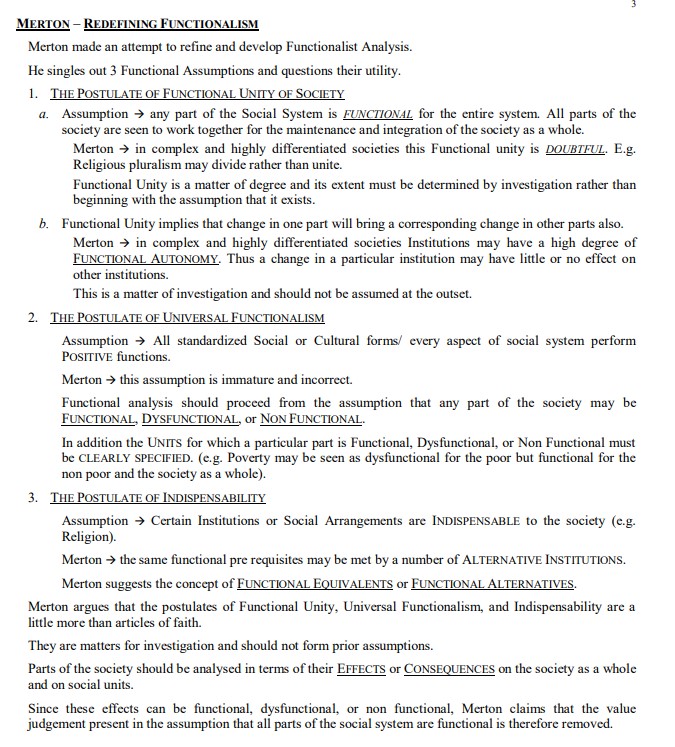The Theories of R.K. Merton
Summary:
This The Theories of R.K. Merton note discusses the dysfunctions of bureaucracy and its impact on the organization. The emphasis on rules and impersonality can lead to inflexibility, displacement of goals, and friction with the public. Merton’s book, “Social Structure and Anomie,” explains deviance as resulting from the cultural and structural pressures within society. He identifies five possible responses to deviance, including conformity, innovation, ritualism, retreatism, and rebellion. Critics argue that Merton fails to account for non-utilitarian crime, illegitimate opportunity structures, and situations where definitions of deviance reflect the views of the powerful. Merton attempts to refine and develop functionalist analysis by questioning the assumptions of functional unity, universal functionalism, and indispensability and suggesting the concept of functional equivalents or alternatives.
Excerpt:
The Theories of R.K. Merton
ROBERT K. MERTON
DYSFUNCTIONS OF BUREAUCRACY – A debate with Max Weber Merton’s article à BUREAUCRATIC STRUCTURE AND PERSONALITY.
Certain aspects of Bureaucratic procedure may be DYSFUNCTIONAL to the Organization.
- The Bureaucrat is trained to COMPLY STRICTLY WITH RULES. In situations not covered by rules, this training may lead to inflexibility and
The Bureaucrat is NOT TRAINED to Improvise and Innovate. His career incentives are designed to reward disciplined action and CONFORMITY to official regulations. It may not be in his interests to bend the rules and manipulate the situation even when such action might further the realization of Organizational goals.
- The DEVOTION TO RULES may lead to the DISPLACEMENT OF GOALS. Conformity to official rules becomes an end in itself rather than being a means to an
The Bureaucrat may lose sight of the organisation’s goals and therefore lose its effectiveness.
- Emphasis on IMPERSONALITY in Bureaucratic procedures may lead to FRICTION between the officials and the
While agreeing that the various elements of Bureaucracy outlined in Weber’s Ideal Type serve to further organizational efficiency, Merton maintains that they inevitably produce Dysfunctional consequences.


Reviews